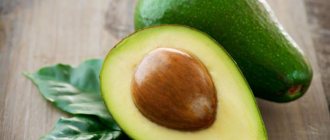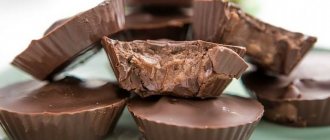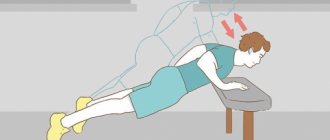What are carbohydrates and where are they found?
Carbohydrates are the body's main source of energy and immunity.
They are divided into two types: simple and complex.
Simple carbohydrates are digested much faster than complex carbohydrates. Their content is highest in sugar and flour.
Complex carbohydrates are found in fruits, vegetables, nuts, seeds, legumes, grains and dairy products.
Of course, this type of carbohydrate is better because foods containing it contain a treasure trove of vitamins, minerals and fiber.
Changes in hormonal levels
A lack of calories and carbohydrates can change the level of production of the following hormones.
- T3 is a thyroid hormone. Studies of Dietary-induced alterations in thyroid hormone metabolism during overnutrition. show that a strict diet can reduce hormone production, and the lack of carbohydrates affects the thyroid gland more than a macronutrient-balanced diet.
- Cortisol is a stress hormone. The absence of carbohydrates increases Diet-hormone interactions: protein/carbohydrate ratio alters reciprocally plasma levels of testosterone and cortisol and their respective binding globulins in man its production, which negatively affects the functioning of the body's main systems.
- Testosterone. According to research, a low-carbohydrate diet reduces Diet-hormone interactions: protein/carbohydrate ratio alters reciprocally the plasma levels of testosterone and cortisol and their respective binding globulins in man the production of this sex hormone.
What foods containing carbohydrates should you avoid?
- Sugar and sweets. If you are used to drinking tea with sugar, you will have to give up this habit. Eliminate confectionery products from your diet in favor of desserts made from fruits or, for example, cottage cheese. Instead of sugar, you can use sugar substitutes or honey.
- Reduce your consumption of white processed rice, white bread, and flour products. Include whole grain bread and brown rice in your diet.
- Forget about breadcrumbs or flour. It's better to avoid fried foods altogether. Boiled, baked or grilled dishes without oil will bring much more benefits.
- Limit your starch intake. Its content is very high in corn, peas and potatoes. As a side dish, asparagus, green beans or broccoli (you can do all together) will come in handy.
- Don't forget about protein "staple" foods. First of all, you need to include lean meat, poultry or fish in your menu. They contain protein and beneficial nutrients. If you consume these products every day for lunch and dinner, you will not have the desire to eat something extra.
- You should always watch your portion size. Eat food from small dishes.
How to reduce your carbohydrate intake
1. Take Glutamine to Reduce Cold-Season Cravings Glutamine is a great way to combat carb-snack cravings because it reduces the cravings for carbohydrates caused by a bad mood or sugar addiction. Taking glutamine can help eliminate obsessive thoughts about food because the substance is used as an energy source for the brain. Glutamine is so effective in combating compulsive symptoms and maintaining the mindset to continue on a chosen path that it is even used in the treatment of alcohol and drug addiction. Take 1-2 grams of glutamine with water before meals to reduce your overall carbohydrate intake. Or, mix 2-10 grams of glutamine with coconut oil to reduce cravings for tempting foods.
2. Take Acetyl-L-Carnitine to Speed up Fat Burning Low levels of carnitine in the body can slow down fat burning. Carnitine is an amino acid that is responsible for transporting fats into the body's cells for use as an energy source. In the absence of carnitine, the body slows down its fat burning process and overall energy levels drop. Beef contains the maximum amount of carnitine - 110 grams contain about 90 mg. A cup of whole milk contains about 8 mg of carnitine, which is more than chicken or fish. Research shows that in order to maximize the level of carnitine in the body, you need to take it in a dosage of about 500-2000 mg per day, which clearly demonstrates the need for supplementation.
3. Take Magnesium to Improve Insulin Sensitivity Magnesium is essential for maintaining optimal insulin sensitivity in the body, and imbalances in blood insulin levels cause intense and recurring bouts of carbohydrate starvation. In addition, according to survey data, high levels of magnesium intake are associated with a reduced risk of diabetes and lower levels of body fat.
Sports scientists believe that athletes need to take about 500 mg of magnesium, since it is actively eliminated from the body during intense muscle contractions. High-quality magnesium comes in the form of glycinate, orotate, fumarate, taurate, or succinate, while cheap forms of magnesium that should be avoided are oxide, cytarate, or carbonate. Using liquid magnesium foot rubs before bed can improve sleep quality and, as a bonus, reduce muscle soreness.
4. Make sure you're getting enough vitamin B, especially biotin and riboflavin According to acupuncturist Chris Kresser, biotin (B7) helps the body convert carbohydrates into glucose and metabolize fats and proteins. Biotin levels usually decrease with the use of various medications, antibiotics, stress and poor intestinal health (a healthy intestine usually produces biotin on its own, but bacteria that multiply during inflammation are not involved in this process). Riboflavin (B2) is used to form enzymes that are necessary for the metabolism of fats in the mitochondria (the cellular organ that produces energy). A deficiency of this element can slow down fat burning. Biotin can be found in cooked eggs (raw egg whites contain a protein called avidin, which interferes with the body's ability to absorb biotin), sardines, nuts (almonds, peanuts, pecans, walnuts), most legumes, cauliflower, bananas and mushrooms. Riboflavin can be found in asparagus, bananas, okra, leafy greens, dairy products, meat, eggs, fish, green beans, tomatoes, mushrooms and almonds. Both elements can be obtained from a B complex supplement.
5. Optimize Chromium Levels Low chromium levels lead to constant carbohydrate cravings caused by blood sugar problems. It also increases the level of triglycerides and cholesterol in the blood, and increases the risk of developing cardiovascular diseases and metabolic syndrome. Surprisingly, Americans are experiencing a serious shortage of this element. According to the University of Maryland Medical Center, about 90 percent of Americans suffer from low chromium levels. Those at higher risk are the elderly, those who exercise actively, those who eat high-carbohydrate foods, and pregnant women. Chromium can be found in meat, cheese and some spices such as black pepper and cumin. Most researchers agree that a dose of 200 mg of chromium 1-3 times a day is sufficient.
6. Diversify Flavors with Spices and Sauces Reducing the amount of "over-tasting" sugars and foods with refined fats can take some time, especially if they have been part of your diet for a long period. Know that this is quite possible, but you must first find the most delicious products for you and stock up on them in advance. You don't want to be caught off guard at work, at a party, or with friends without a tasty, low-carb "supplement."
Use the following seasonings to enhance the taste of food: vanilla, cinnamon, mint, anise, cardamom, coriander, cumin, turmeric, nutmeg, cloves, garlic, onions, citrus fruits, vinegars, pomegranate, berries, cherries, and cocoa. Additionally, it is suggested to use the following foods to reduce carbohydrate cravings: - If you constantly snack on salty foods such as chips or pizza, then you may need tryptophan or chloride. Eat cheese, fish, sweet potatoes, spinach and sea salt;
- If you like to snack on chocolate, you need more magnesium or zinc. Give preference to chocolate with more than 70 percent cocoa content; - If you crave sugar or bread, you may be dehydrated. Drink more water, add citrus juice and eat fruit; - If you always crave foods with refined fats, eat a dish rich in proteins and good fats, such as eggs, meat and nuts cooked in coconut oil, a piece of bacon with an egg and avocado, or pieces of meat/fish with a slice of cheese; — if you can’t tear yourself away from sugary sweets, then you may be experiencing a lack of sulfur. Try including rich sources of sulfur such as broccoli or Brussels sprouts with onions and garlic.
7. Get enough sleep Lack of sleep increases the desire to indulge in particularly tasty sources of carbohydrates, thereby increasing the overall calorie intake. It also saps your willpower and weakens your ability to resist the urge to snack on carbohydrates. Research shows that people feel more hungry, make poor food choices, and eat more (on average 300 kcal) when they're tired. Plus, insulin sensitivity and glucose tolerance decrease with lack of sleep, and the body begins to store (rather than burn) fat.
8. Don’t push your willpower to the limit of its capabilities, but at the same time keep track of what exactly you eat. Keep a food diary in which you will honestly record all the information about what you ate, but which no one else will see except you - but make sure that you see this information. Watch what exactly you put in your mouth. If you've never kept a completely honest food diary before, you'll probably be very surprised by the numbers, especially when it comes to carb intake. Don't be embarrassed or blame yourself! Overcoming your biological nature to crave tempting, tasty carbohydrates will take time. Once you have achieved this to a large extent, start looking for replacements for high-carbohydrate foods - giving preference to foods with a low glycemic index. Determine which foods help you cope with carbohydrate cravings, and which only increase your cravings.
9. Keep Your Metabolism Flexible A flexible metabolism allows your body to use both fat and carbohydrates as an energy source. This is an ideal option that allows you to maintain a constant energy level even when the type of training changes. It also makes the fat burning process easier. When your metabolism is “inflexible”, it is best adapted to using carbohydrates as an energy source and is unable to mobilize and use fat stores. Eating high-carbohydrate, low-fat foods reduces metabolic flexibility, and this process gets worse if you are also overweight. Whenever your sugar levels drop because you haven't eaten for several hours, you start craving carbohydrates to boost your blood sugar and energy levels. If in life you prefer carbohydrates with a high sugar content, then you will snack on the same carbohydrates, because sugar has the ability to be addictive, activating the pleasure center in the brain. Exit? - avoid high-sugar carbohydrates - reduce your overall carbohydrate intake - make your metabolism more flexible For people of normal weight, fat burning in the body can be accelerated by eating more fat and fewer carbohydrates. But the body of overweight people cannot adapt so easily, and obese people have a very “inflexible” metabolism and are difficult to burn fat. This can be changed - and it is not temporary - but simply changing your diet will not allow the body to do this. The only way overweight people can increase the amount of fat they burn is through intense exercise. Intense sprint training and long endurance training are both catalysts for overweight individuals to achieve a flexible metabolism. Strength training can also be effective.
10. Reduce the amount of refined food in your diet in favor of foods with a low glycemic index Refined carbohydrates are your biggest enemy when it comes to carb snacks because they are artificially created to be extremely tasty. Research shows that consuming these carbohydrates changes the pattern of brain activity, adapting neural activity to ensure that you snack on these foods on a regular basis. Refined carbohydrates are like drugs for the brain. If you have access to them irregularly, which may be because you are trying not to eat them, you will most likely experience withdrawal symptoms. This won't do. The solution is to replace refined foods with whole, low-glycemic index foods that are rich in protein and healthy fats. It will be difficult at first, but over time you will retrain your taste buds, brain, and overall behavior to begin to enjoy whole foods the same way you once enjoyed carbohydrates.
11. Increase your insulin sensitivity to reduce carb cravings Insulin is not strictly speaking a hormone that directly reduces hunger, but when you are sensitive enough to it, it may well exhibit this property. If you are insensitive to insulin, which overweight people often suffer from, insulin is not able to neutralize your appetite at the right time, and you continue to feel hungry. Research shows that insulin sensitivity can not only determine the severity of upcoming hunger within a few hours after eating, but also the ability to lose excess weight in general.
The easiest way to improve insulin sensitivity is to start exercising: strength training, aerobic exercise, and sprinting all work great. A low-carb diet is a well-known way to combat this phenomenon, but if there are too few carbohydrates and it lasts too long (for example, during a ketogenic diet), it can, on the contrary, provoke insulin resistance. High-carbohydrate meals every 5-7 days help prevent this phenomenon.
12. Optimize your gut function A poorly functioning gut increases cravings for carbohydrate snacks for the following reasons: - it leads to an inflammatory process that makes the body insensitive to the “satiety messages” transmitted by insulin; - this leads to nutrient deficiency because food is poorly digested. A deficiency of B vitamins, chromium, magnesium and carnitine may well lead to strong cravings for carbohydrate snacks;
- This can alter the functioning of the neurotransmitter system and increase symptoms of depression, which are often directly related to carbohydrate cravings. Research shows that people with low moods often turn to foods high in sugar in an attempt to improve their mood. Improve your gut health by eliminating foods that may not suit you (usually dairy, gluten). Next, optimize your gut health by taking powerful probiotics and adding foods high in probiotics (i.e., foods that contain bacteria similar to those found in the gut itself), such as onions, leeks, Jerusalem artichokes, asparagus, banana and chicory root.
13. Learn to cope with stress Stress contributes to the emergence of strong cravings for carbohydrates. First, serotonin, the brain chemical that makes you feel pleasure, is made from an amino acid called tryptophan, which is found in carbohydrate-rich foods. Serotonin levels drop under stress, creating a craving for carbohydrates to restore it. Second, elevated cortisol levels blunt the desire to eat low-carb foods, which are less palatable, but increase cravings for highly palatable carbohydrates. This way, you'll never crave steak and Brussels sprouts, but you'll go crazy for a bagel, cake, or other high-carb treats. Manage stress through meditation or another practice. This allows you to significantly reduce cortisol levels and optimize the stress mechanism towards greater calm.
Source
Shall we turn on some music to set the mood?
Now playing:
Open Kluber FM website | iOS app | Android app
General recommendations.
- It’s a good idea to calculate the number of calories you need to consume daily to lose weight. It is also important to calculate the amount of proteins, fats and carbohydrates. The latter should not exceed 45-65% of the daily value.
- Before taking the plunge, consult your doctor or nutritionist. Based on the test results and everything else, it will be possible to select the most suitable menu.
- When purchasing a product, pay attention to the composition and ratio of proteins, fats and carbohydrates.
- There is no need to adhere to newfangled diets. The diet must be balanced, otherwise it can lead to health problems or a “breakdown” from the diet.
- Take care of your nerves. Negative emotions will only increase the craving for unhealthy treats. Meditation is a more effective way to combat stress.
A low-carb, balanced diet will help burn excess body fat and improve body quality, but it won’t hurt to add physical activity to your daily life. You will certainly notice changes in your appearance and well-being if you follow the rules written above.
The importance of carbohydrates in the human body
Carbohydrates are the most common type of organic compounds that provide vital functions for the body.
There are the following types of carbohydrates:
- simple: mono- and disaccharides - glucose, fructose, lactose, sucrose;
- complex: polysaccharides – digestible (starch and others), non-digestible (fiber).
Gastronomic equivalents:
- simple: sugar found in sweet fruits, vegetables, milk and confectionery;
- complex: cereals, flour products, nuts and legumes, vegetables, root vegetables.
Good to know! Coarse fiber (found in raw vegetables, grain shells, greens) improves intestinal motility.
Once in the body, any carbohydrate is broken down into glucose. Glucose, entering the gastrointestinal tract, is a direct source of energy. The process of obtaining energy from glucose occurs with the help of the hormone insulin. It delivers glucose to those tissue areas that need it. Our body has another function - storage. It stores glucose by building glycogen chains. Such compounds are stored in muscles and liver. This is necessary so that in the event of a prolonged fast or active physical activity, the body is able to obtain the necessary energy.
Carbohydrates are the most common type of organic compounds that provide vital functions for the body.
Glucose also serves as one of the main elements of hyaluronic acid, which exists to retain moisture in skin tissues. It gives the skin elasticity.
Fast carbohydrates
An alternative name for this group is easily digestible or simple carbohydrates. They are distinguished by a minimum number of structural units: no more than 2 molecules. They are processed in a matter of seconds, so they enter the blood almost instantly and provoke a spike in sugar with a high glycemic index. This entails an instant rise in energy, but it falls at the same speed. Fast carbohydrates can be eaten when you have a loss of strength, when you need to urgently restore performance for a short period of time, but they fill you up for a short time, so it turns out to be a vicious circle.











